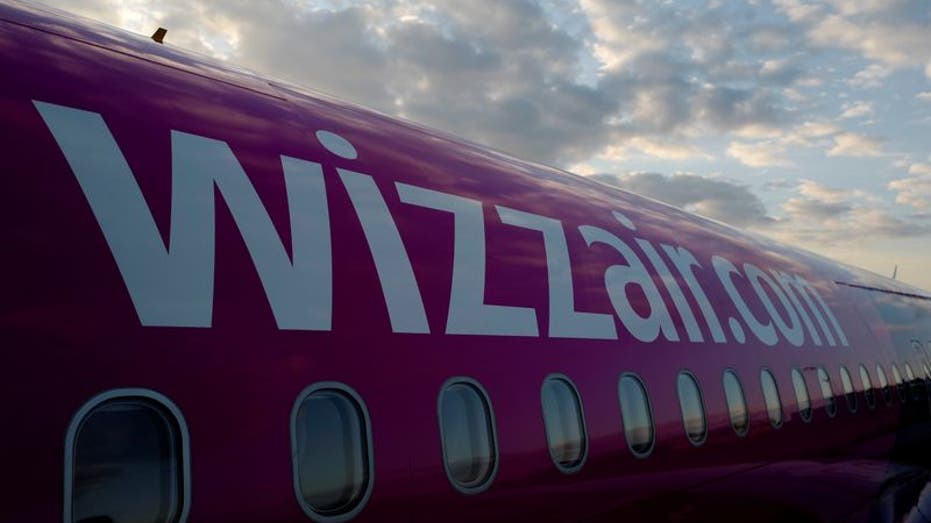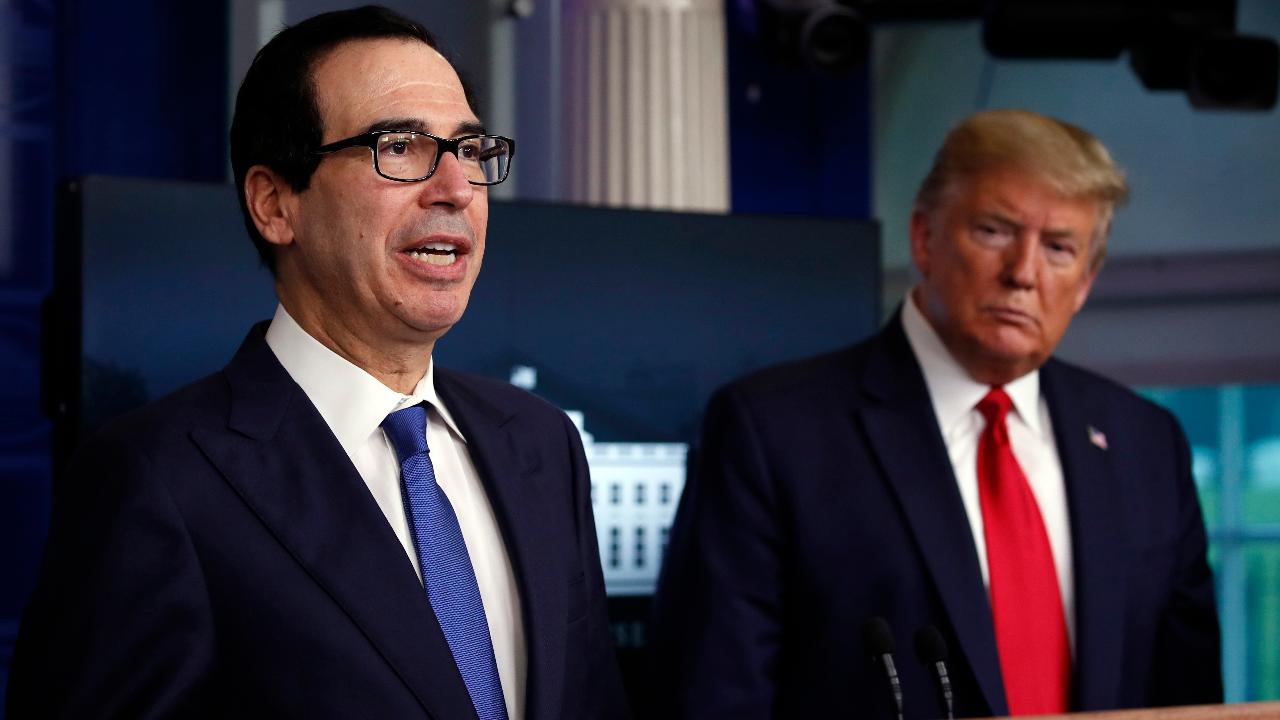Airlines consider coronavirus social distancing and face masks
Wizz Air, Ryanair, easyJet, strategizing seating arrangements and PPE amid COVID-19 pandemic
Get all the latest news on coronavirus and more delivered daily to your inbox. Sign up here.
Wizz Air is making plans to fly jets only two-thirds full to allow more space between passengers, it said on Tuesday, as airlines voiced concerns that anti-coronavirus measures could blight their profitability long after travel restrictions end.
Wizz (WIZZ.L) Chief Executive Jozsef Varadi and the head of global airline trade body IATA both said single-aisle planes may be required to leave the middle seats on each side vacant to allow a degree of “social distancing” aboard.
U.S. AIRLINES MUST REPAY SOME CORONAVIRUS CASH, MNUCHIN SAYS
| Ticker | Security | Last | Change | Change % |
|---|---|---|---|---|
| WIZZAF | NO DATA AVAILABLE | - | - | - |

A Wizz Air Airbus aircraft is pictured at London Luton Airport, Britain, April 13, 2019. (REUTERS/Kacper Pempel)
“We would basically be blocking a third of the airplanes,” Varadi told Reuters in a telephone interview. “A 180-seater would become a 120-seater.”
Beyond the open-ended lockdowns and travel bans that have brought air travel to a near-halt, deep uncertainty remains over the pace of an eventual recovery and the potential for lasting restrictions that could pile up yet more losses.
Raising its coronavirus impact forecast to $314 billion, IATA described “worrisome” signs of governments “doubling down on international travel restrictions” even when lifting lockdowns - citing developments in China and South Korea.
CORONAVIRUS FORCES AIRLINES TO CONSIDER SELLING MILES FOR CASH
Alexandre de Juniac, the Geneva-based organization’s CEO, said leaving the middle seat vacant was among likely conditions for a resumption of air travel to be discussed with governments in a series of coordinated meetings around the world.
Operating aircraft with more seats has been a “key element of profitability for airlines”, which typically break even above 75% seat occupancy, De Juniac said.
Taking out one-third of passengers would be a “reshuffle of the business model,” he added. “It changes the way they operate short-haul aircraft completely.”
The effect could be felt more keenly by low-cost carriers, which typically operate at higher load factors - the proportion of seats filled, weighted for distance flown.
DELTA BLOCKS MIDDLE SEATS FOR CORONAVIRUS PREVENTION
But stronger balance sheets and labor flexibility could make Wizz Air, Ryanair (RYA.I) and easyJet (EZJ.L) better able to withstand virus-related losses than older peers Lufthansa (LHAG.DE) and Air France-KLM (AIRF.PA). Citi analysts say Ryanair and Wizz Air may be the only major European carriers that can avoid raising new capital or government-backed debt.
| Ticker | Security | Last | Change | Change % |
|---|---|---|---|---|
| RYAAY | RYANAIR HOLDINGS PLC | 68.61 | +1.06 | +1.57% |
| EJTTF | EASYJET PLC | 6.9 | +0.52 | +8.07% |
| DLAKY | DEUTSCHE LUFTHANSA AG | 10.87 | +0.30 | +2.84% |
| AFLYY | AIR FRANCE-KLM SA | 1.36 | +0.04 | +3.42% |
Wizz Air, a London-listed carrier based in Hungary and focused on central and eastern Europe, said it was cutting 1,000 jobs, about one-fifth of its total workforce.
It nevertheless reiterated plans to increase capacity by 15% annually once markets return to normal and will take delivery of 12 narrow-body jets this year and another 30-40 aircraft in 2021-23. It has Airbus A320neo and A321neo jets on order.
GET FOX BUSINESS ON THE GO BY CLICKING HERE
Germany’s Lufthansa, by contrast, last week predicted it would be years before air travel returned to pre-crisis levels. EasyJet has also said it would defer delivery of 24 Airbus (AIR.PA) jets.
| Ticker | Security | Last | Change | Change % |
|---|---|---|---|---|
| EADSY | AIRBUS SE | 56.41 | +0.64 | +1.15% |
Besides the additional effects of a broader economic slump on travel, airlines are nervous about passengers’ readiness to return to security lines, boarding lounges and plane cabins.
Wizz Air is exploring “all sorts of measures to put in place, especially in the initial period”, Varadi said - including protective gear for passengers.
The airline may need to “make sure that people actually travel in masks to protect themselves and protect their fellow passengers”, he said.
CLICK HERE TO READ MORE ON FOX BUSINESS
Reporting by Sarah Young; Editing by Jane Merriman and Mark Potter




















